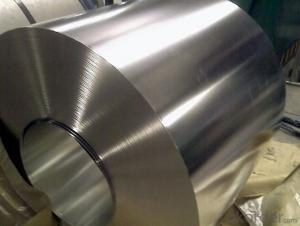Rebar and concrete are two of the most widely used materials in the construction industry. They are known for their strength and durability, but when combined, they create a powerful duo that is unmatched in terms of structural strength. Let’s dive into the world of rebar concrete and explore its benefits, applications, and the process of creating the perfect mix.
The Dynamic Duo: Rebar and Concrete
Rebar, short for reinforcing bar, is made of steel and is used to reinforce concrete. It adds tensile strength to the concrete, which is essential for withstanding the forces of tension and compression that occur during construction and use. Concrete, on the other hand, is a mixture of cement, sand, water, and aggregates. It is strong in compression but weak in tension. When rebar is added to concrete, it creates a composite material that is strong in both tension and compression.
The Benefits of Rebar Concrete
Rebar concrete offers numerous benefits that make it the perfect choice for a wide range of construction projects. Some of these benefits include:
1. Enhanced Structural Strength: The combination of rebar and concrete results in a material that is stronger and more durable than either material alone. This enhanced structural strength allows for the creation of larger and more complex structures.
2. Improved Durability: Rebar concrete is highly resistant to wear and tear, making it ideal for long-term use in various environments. It can withstand harsh weather conditions, heavy loads, and other factors that can degrade other materials.
3. Flexibility in Design: Rebar concrete allows for greater flexibility in design, as it can be molded into various shapes and sizes to suit the needs of different projects. This makes it a versatile material for architects and engineers.
4. Cost-Effectiveness: While the initial cost of using rebar concrete may be higher than other materials, its long-term durability and reduced maintenance requirements make it a cost-effective choice in the long run.
Applications of Rebar Concrete
Rebar concrete is used in a variety of applications, including:
1. Buildings: Rebar concrete is commonly used in the construction of residential, commercial, and industrial buildings. It provides the necessary strength and stability for these structures.
2. Bridges: The strength and flexibility of rebar concrete make it an ideal material for constructing bridges, which must withstand heavy loads and various environmental conditions.
3. Infrastructure: Rebar concrete is used in the construction of roads, highways, and other infrastructure projects, providing a strong and durable foundation.
4. Marine Structures: Due to its resistance to water and salt, rebar concrete is often used in the construction of marine structures, such as docks, piers, and breakwaters.
Creating the Perfect Mix
Achieving the perfect mix of rebar and concrete is crucial for ensuring the structural integrity and longevity of a project. Here are some key factors to consider when creating the perfect mix:
1. Rebar Size and Spacing: The size and spacing of the rebar will depend on the specific requirements of the project. Larger diameter rebar can provide greater strength, while closer spacing can improve the overall performance of the concrete.
2. Concrete Mix Ratio: The ratio of cement, sand, water, and aggregates in the concrete mix is essential for achieving the desired strength and workability. A well-balanced mix will ensure that the concrete is easy to work with and provides the necessary structural support.
3. Quality of Materials: Using high-quality materials for both the rebar and concrete is crucial for ensuring the strength and durability of the final product. This includes selecting the appropriate grade of steel for the rebar and using high-quality cement and aggregates for the concrete.
4. Proper Installation: Proper installation of the rebar within the concrete is essential for maximizing the benefits of the composite material. This includes ensuring that the rebar is properly positioned, secured, and bonded to the concrete.
In conclusion, rebar concrete is a powerful combination of materials that offers enhanced structural strength, improved durability, and greater design flexibility. By understanding the benefits and applications of rebar concrete and following the proper guidelines for creating the perfect mix, you can ensure that your construction projects are built to last.

